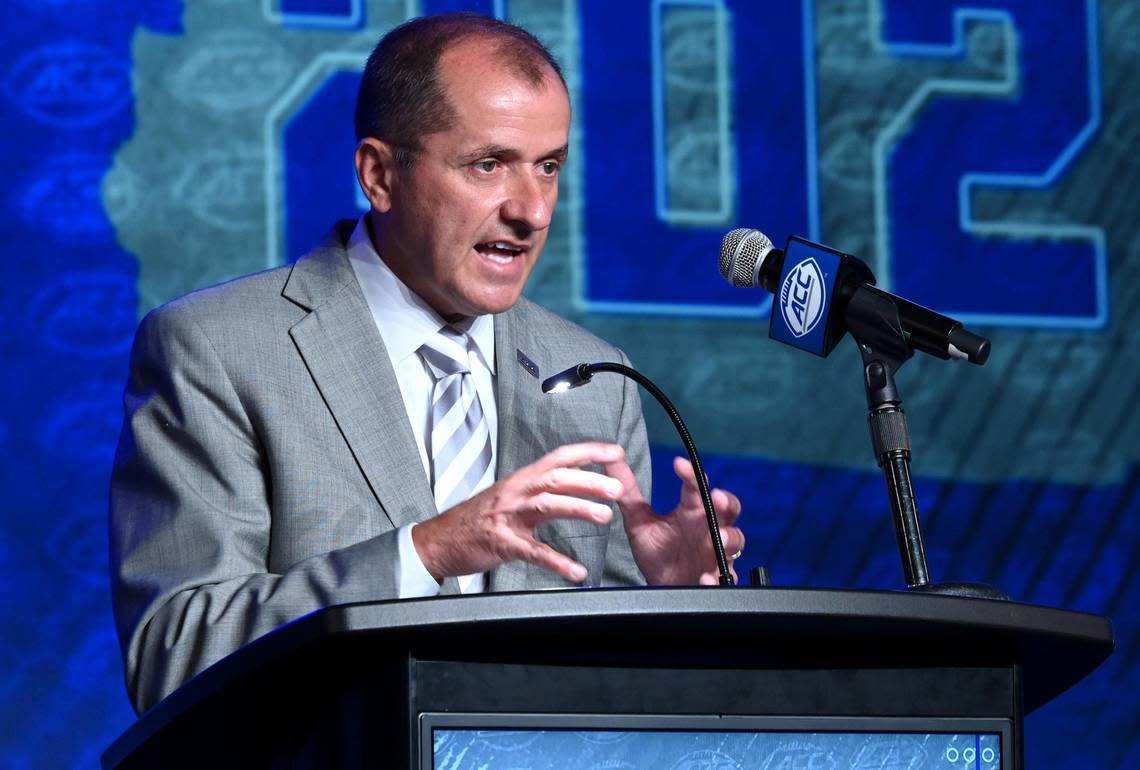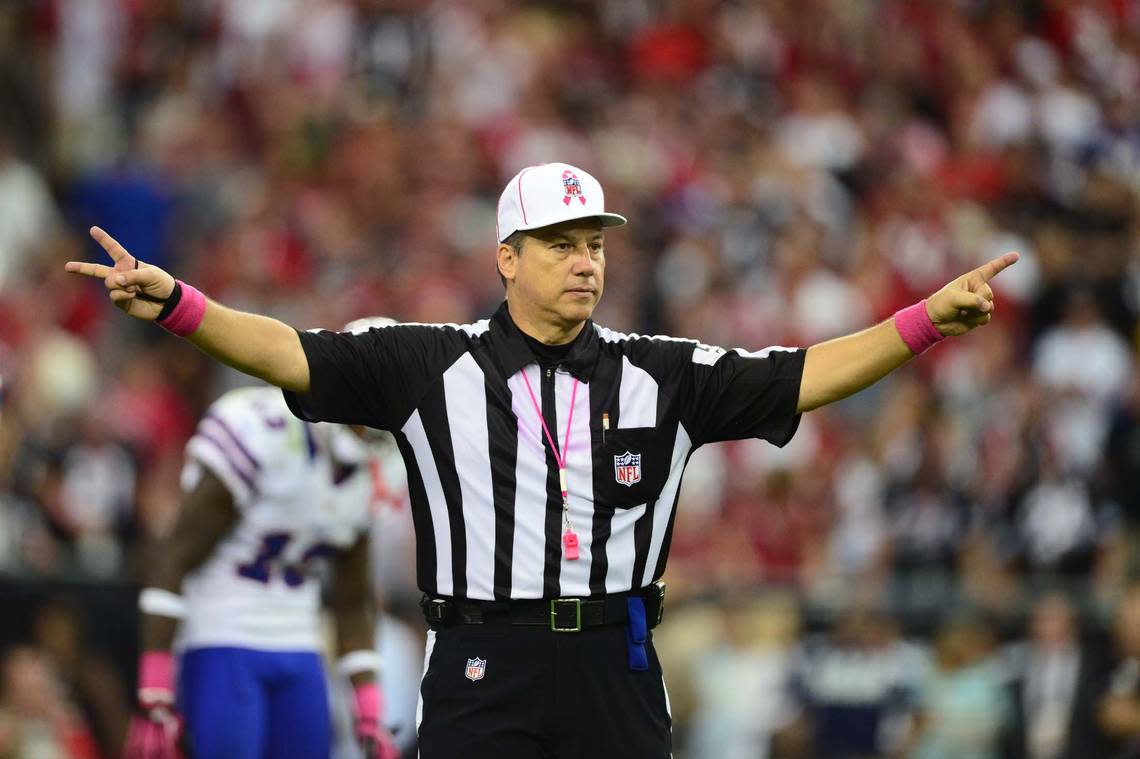How ACC football’s need for speed could pay off with shorter games, more engagement
The ACC may never be the greatest conference in college football the way it is in basketball, and that’s fine, but maybe it can be the fastest?
Not only is a tweak to the game clock expected to shorten games by as many as eight or nine plays — it’ll only stop after first downs in the final two minutes of each half, bringing college football closer to the NFL — but the ACC’s new supervisor of officiating has another idea to speed things up, and it’s what almost every fan wants to hear.
Faster replay reviews.
It feels good just to read that.
“Replay,” Alberto Rivaron said, “should not be a deterrent to the flow of the game.”
Hallelujah.
Rivaron, a former college and NFL referee who spent four years as the NFL’s head of officiating, is bringing that league’s approach to replay to the ACC. Take a look, check for egregious errors … and move on.
It’s a fresh take on one of the biggest reasons college football games stretch out over an unacceptable 3½ hours and beyond, dangerous for players and disrespectful of fans’ time. Streamlining the replay process is low-hanging fruit, and the NFL has historically done a much better job of that than any college conference. The ACC has a chance to be a trend-setter here.
“We’ve discussed how we’re officiating the game, how we’re running replay, trying to expedite that and get it right,” ACC commissioner Jim Phillips said. “But also understanding there should be some time constraints in the length of time we’re taking to figure out whether a call was accurate or not.”

Not stopping the clock after every first down is a long-overdue change, although officials have gotten pretty good at getting the ball spotted and the clock started in this era of fast-paced offenses.
“I see the studies and talk about six minutes to eight minutes off the game,” Georgia Tech coach Brent Key said. “I don’t know. You really start digging into it, and you say maybe it could be a few more minutes.”
We’ll see that across college football. But within the ACC, there’s a deliberate effort to cut back on the amount of time spent staring at screens as well, thanks in part to Rivaron’s NFL background.
The ACC went outside of the box a little bit to hire Rivaron, someone better known for his work in the pros than the college game. But there was also a sense that the ACC could benefit from a fresh look at football officiating, an outsider’s perspective. Rivaron’s predecessor, Dennis Hennigan, was a longtime college referee who moved straight into a supervisory role, a Big East-slash-ACC lifer.
After retiring from the NFL, Rivaron had been at home in Miami when he started to get an itchy whistle. The ACC’s opening came along at the right time, and he was the set of new eyes the ACC wanted and probably needed. At the same time, there is some trepidation among coaches as to what changes he’ll make, especially after several ACC officials moved to other conferences after Hennigan’s departure.
“It’s no different than a new head coach, or a new assistant coach – you get a new guy in charge of the officials, and I would say it’s a work in progress,” Pittsburgh coach Pat Narduzzi said. “I’m sure there will be a learning curve to it. Things may be called in a different way.
“The great thing about Dennis Hennigan was you knew what you were going to get every week, and there’s something to continuity. At least you know how they’re going to call this or call that. Every coach goes into the season wondering how they’re going to call some things different, how (Rivaron) is teaching them.”

Since starting in November, Rivaron has been able to help design the league’s new operations war room at its new Charlotte office and hire eight position supervisors, seven of whom are current NFL officials, to build out a more robust training and evaluation process as part of an increased ACC investment in officiating infrastructure.
“You have to reset standards,” Rivaron said. “That’s what a new administration has to do.”
Resetting the standard on how long a college game should take is a kind of a fringe benefit to that. There are several reasons why it makes sense to limit the amount of time players spend on the field and fans spend in the stands. If the NFL can get most of its games into a three-hour window, the ACC would like to at least get closer to that.
“That would be ideal,” Phillips said. “What I’d like to see is a tangible difference from last year or the last couple years to what we see this year. We’ll be able to see whether our efforts really were fruitful.”
Never miss a Luke DeCock column. Sign up at tinyurl.com/lukeslatest to have them delivered directly to your email inbox as soon as they post.
Luke DeCock’s Latest: Never miss a column on the Canes, ACC or other Triangle sports
